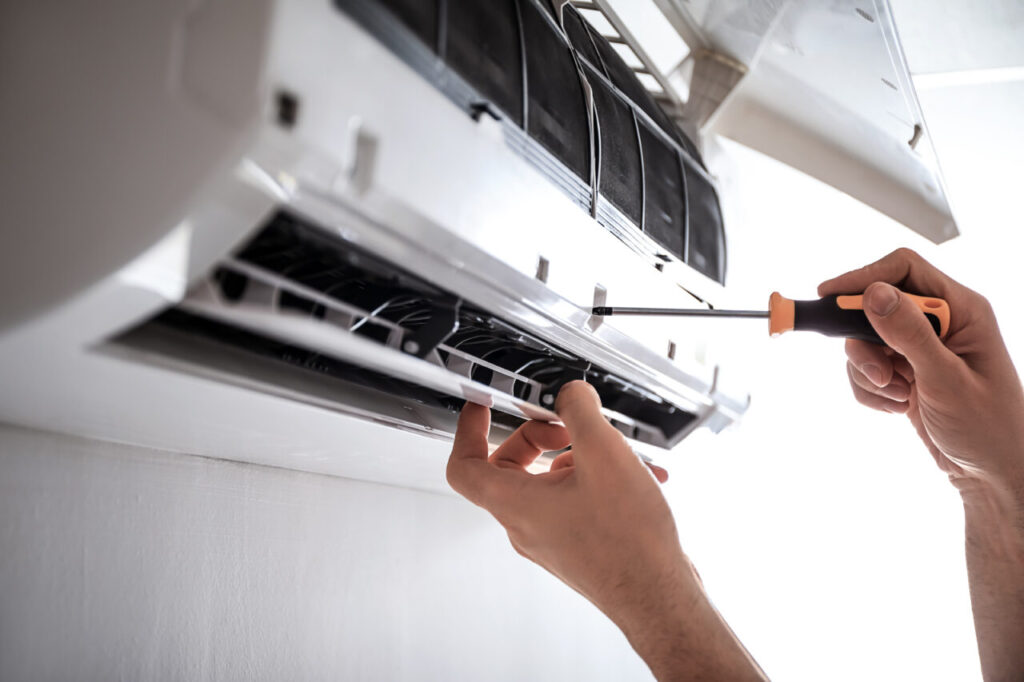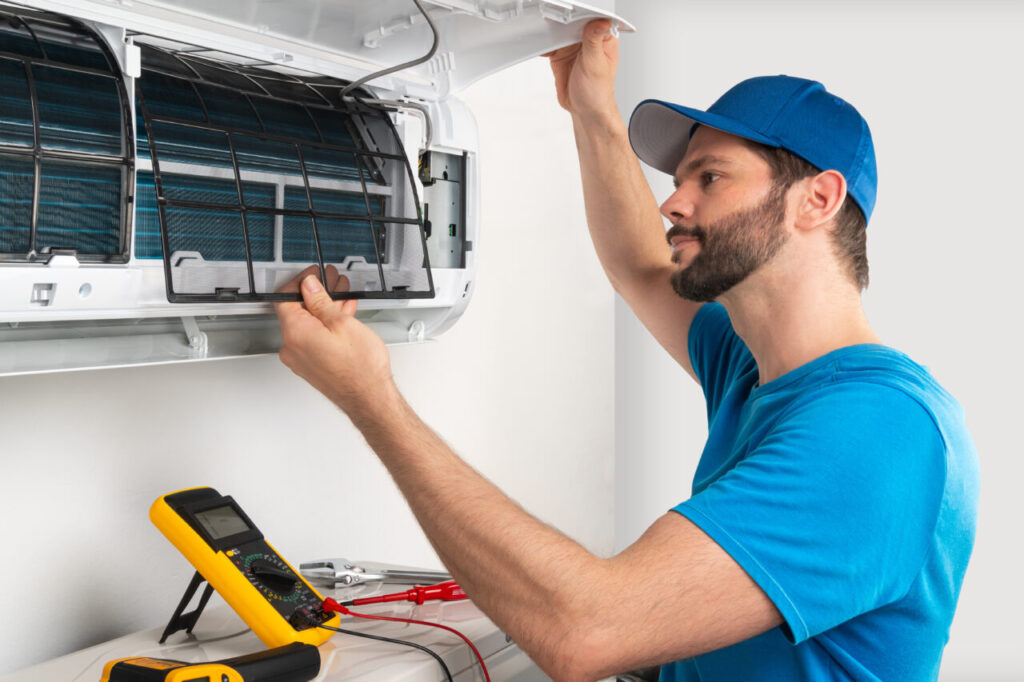Nowadays, because of global warming, it’s normal for temperatures to oscillate between extremes of hot and cold. Thus, air conditioning units (ACs) have become increasingly important for favorable living conditions. Thankfully, due to technological advancements, these AC systems have become more abundant and affordable.
However, when buying one, it’s always good to lean towards quality products even though they tend to fetch higher prices. Even so, there are still some affordable, good value products on the market. Also, if you’re looking for a new heating, ventilation, and air conditioning (HVAC) system, it may be worth conducting research beforehand.
That said, here are some things you ought to consider for a new air conditioner installation. Continue reading to learn more about each one.
1. Licensed Contractor
You must look for a reliable, professional, and experienced contractor who specializes in smart HVAC installation. Experienced technicians know and understand how to install an AC system properly. They’re the people you want to work on the installation and regular maintenance.
Air conditioning systems can be quite expensive, so you want someone who knows what they’re doing to handle them, especially during installation. Plus, these experienced people usually offer service guarantees. If something goes wrong during installation, they can fix it at their own cost.
2. Cost
If you’re looking to buy an AC unit, costs are a very important consideration. Every household has different financial capabilities and therefore will have different budgets to work with. While those who have more flexible budgets can afford high-quality air conditioners, some may have to buy cheaper, more affordable models. But it’s important to note that while you can settle for cheaper units, these tend to be of low quality and may not last as long.
Thus, it’s preferable to invest in a good quality air conditioner even if it’s slightly more expensive. At least you’ll have a guarantee that it will last longer. The higher quality ones are usually more energy-efficient too. Perhaps then, the best thing would be to stick to your budget. Then, buy the best unit possible with a price tag that falls within your set budget. You don’t have to break the bank to get a wonderful system because there are many options out on the market today.
3. Maintenance
Just like with every other part of your home, you need to consider the costs of maintaining your AC unit. Regular maintenance is important because ACs can break down if they’re left in an unkempt state. Generally, prevention is usually better than cure.
Wear and tear is a pair of factors that affect most household appliances, including ACs. Regular maintenance keeps them in check. You don’t want to identify a problem when it’s too late. Rather, you want to identify and fix it as soon as possible. Ideally, you need to partner with a service provider who can conduct regular checkups and repairs. Remember, if you take care of it, it’ll take care of you and it’ll last longer as a result.
4. Quality
The quality of the AC system you’ll purchase matters. Now, the biggest advantage of buying a quality product is longevity and reliability. Although quality items are more expensive, you’re guaranteed that they’ll last longer.
Quality items often come with warranties or service guarantees attached to them as well. So, if their air conditioner is faulty, you can use the warranty feature to get a replacement. The cheaper ones don’t always offer warrantees or guarantees and aren’t as reliable. Hence, by investing in quality AC, you know that you’re covered for a long time, especially if maintenance is up to date.
5. Size
AC units come in different shapes and sizes, and so do houses. Depending on the size of your house and the rooms, there’s a perfect and right size AC for your household. You may need the eyes of a professional to help you find the right size. The contractor will consider the size of the rooms and look for the ideal location to place the AC to promote optimal cooling and heating throughout the entire house.
You want your air conditioner to be proportionate to the size of the house because buying one that’s too small or too big will cause either wastage or shortage. That’s why you need to consult with experts on this one.
6. Ductwork
You may not realize this, but inefficient ductwork can cause air to leak out. So, you need to make sure that before installing an AC, your ductwork is patched up properly. Plus, if you have old ductwork, you should consider replacing it because it may not be as efficient at keeping cold air in. If you’re not sure about how you can fix the ductwork, simply look for a professional AC technician to do it for you.
7. Energy Efficiency
Air conditioners use up quite a lot of energy. But nowadays, some are more efficient. So, it’s worth checking what the energy efficiency rating or the AC you want to buy is. Check the energy efficiency ratio (ERR) rating. The higher the ERR rating, the more energy-efficient an AC is. Energy efficiency matters because you certainly don’t want to have an air conditioner that causes your bills to skyrocket every month.
In addition, if you care for the environment, you need to ensure that you get an energy-efficient AC too. For example, the air conditioners manufactured these days don’t use the refrigerant called Freon anymore. They now run on Puron, since they found it to be less harsh for the environment. So, you need to stay away from air conditioners that aren’t environmentally friendly, too.
8. Durability
Now, in line with the importance of quality, you need to find a durable AC. You don’t want a unit that constantly breaks down. These are characteristics of inferior quality systems that you need to avoid. You instead need to go for higher-quality systems that’ll ensure durability. You won’t need to replace them often. Plus, from a cost perspective, you get to save more money in the long run.
9. Installation
Before installing your system, make sure that it’s not placed anywhere near a heat source, gas, or direct sunlight. The reason is that sunlight forces the system to work harder. Instead, you need to locate the air conditioner in a place that has shade or doesn’t receive as much sunlight. So, leave the professional to give you proper advice on where to install the AC package in your house.
Conclusion
Air conditioning systems are an important part of most modern homes and help people get through unbearable temperatures. Make sure that when you buy an air conditioner, it’s of noble quality. To increase its longevity, make sure that it’s maintained regularly. For optimal results, you need to look for a reliable AC technician, preferably in your locale with industry experience.
Bob Rogers
Bob Rogers is a retired residential contractor specializing in HVAC work. After taking on various projects for more than two decades, now they do smaller works to focus on doing their hobbies (which include fishing, hiking, and the like).
Springtime HVAC Maintenance Checklist
10 Signs It’s Time to Call an HVAC Technician
The Most Efficient Way to Heat and Cool Your Home



